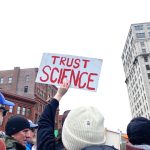The first 100 days of U.S. President Donald Trump’s second term have already undermined human rights and access to health care, both in the United States and across the globe. Several executive actions signed by the president target people seeking asylum and other migrants to the United States, while other new policies erode public safety, jeopardize reproductive health, and undermine global health cooperation. Taken together, President Trump’s policy agenda threatens public health and violates fundamental rights.
As an organization dedicated to the promotion and protection of human rights and health, Physicians for Human Rights (PHR) is alarmed at the dangerous trajectory of these policies. In response PHR will continue to mobilize our networks of clinicians – including nurses, doctors, and psychologists – as well as our expert teams of lawyers, policy and human rights advocates, and researchers to protect the rights of asylum seekers, freedom of expression and peaceful assembly, the right to comprehensive reproductive care, and the right to health, among others.
Here’s a look at executive actions taken by President Trump in his first 100 days.
Updated April 28, 2025
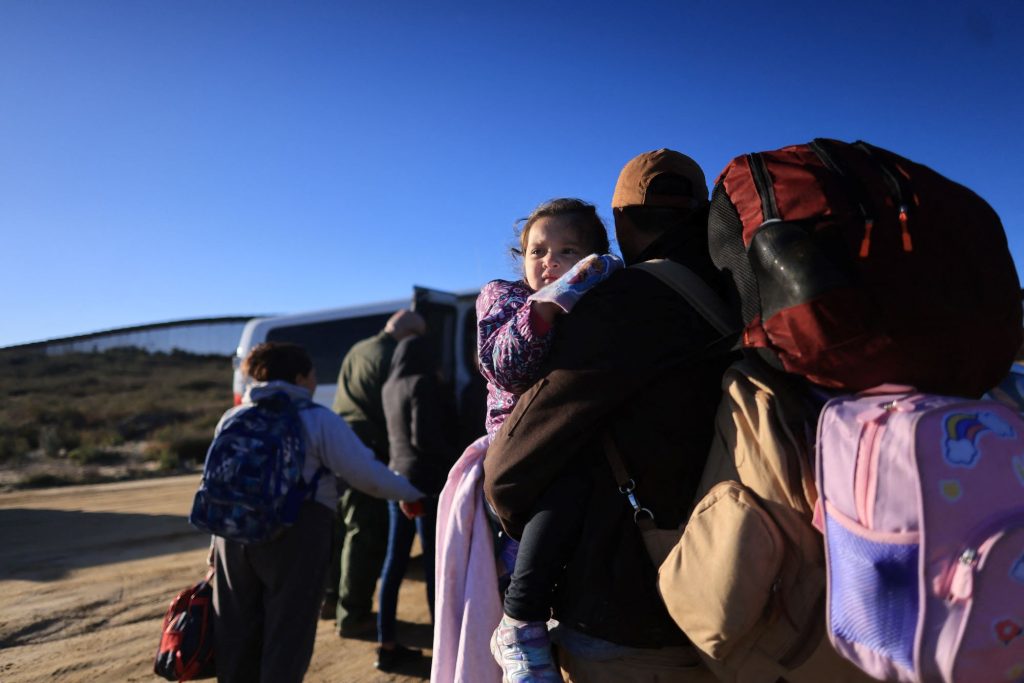
Attacks on Immigrants and Dismantling the Right to Seek Asylum
President Trump’s 2025 executive actions dismantled immigration and asylum policies and adopted a policy of “deterrence through cruelty.” It is now even more difficult, and in some cases, impossible, for individuals fleeing violence and persecution to seek refuge in the United States, especially those seeking to cross the U.S.-Mexico border.
With mandatory detention for noncitizens now enshrined in federal law, immigrant communities are facing a sweeping expansion of criminalization and detention. Under these policies, individuals who are merely suspected or arrested for crimes such as burglary, theft, larceny, shoplifting, can be subjected to prolonged detention without individualized assessments of risk or release eligibility. This framework conflates immigration enforcement with criminal punishment, reinforcing a punitive system that disproportionately targets immigrants for detention and deportation, even when they have not been convicted of a crime.
The Trump administration prepared the Guantánamo Bay prison in Cuba to detain migrants and began to send people to the site infamous for torture and isolation from judicial oversight. Among the 178 migrants held in the prison in February, 51 were nonviolent, “low risk” detainees who lacked criminal records, despite the administration’s claims to only hold the “worst of the worse” at the site. PHR filed an official complaint to the Department of Homeland Security Office of Civil Rights and Civil Liberties (CRCL) – responsible for ensuring that policies and actions by the Department of Homeland Security (DHS) respect civil rights and liberties. The complaint calls for the government to release the names of those detained in order to facilitate contact with attorneys, investigate conditions in the prison, and to ultimately end the use of Guantanamo for immigration detention. CRCL was dismantled less than two weeks later, eliminating a critical safeguard intended to hold DHS accountable for abuses, and increasing the risk of unchecked violations. As of April 22, it is unclear how many migrants remain at the facility.
The decision to rescind the “Sensitive Locations policy,” previously preventing immigration enforcement in or around hospitals, schools, and places of worship, has already impacted access to health care within our borders. Preliminary findings from a survey of clinicians in PHR’s Asylum Network across the country suggest that the rollback of suck protections has contributed to a pervasive climate of fear. Care providers reported that this fear is already contributing to negative health outcomes among individuals of a broad range of immigration status, including delayed care, missed preventive services, and treatment interruptions. Many note that patients are arriving sicker, with some anticipating more advanced disease presentations, such as late-stage cancers. Children in mixed-status families are especially vulnerable, with parents in some cases refusing essential services like post-surgical rehabilitation due to immigration-related concerns, indicating a broader, long-term public health impact that extends beyond individual patients.
Over the past 100 days, immigration enforcement agencies have been empowered to detain and expel immigrants without due process and blatant disregard for the judiciary. Nearly 300 people who had attempted to seek asylum in the United States were expelled to Panama via military planes. In response to this, PHR mobilized four physicians and one psychologist to fly to Panama. After being released from detention in Panama and given limited protected status by the Panamanian Government, PHR’s clinicians conducted 27 in-depth medico legal evaluations. The individuals evaluated included a women’s rights advocate and a former military officer who had fought against the Taliban and now faced extreme danger or potential death in Afghanistan; people in Iran who had converted from Islam to Christianity, where such conversions are punishable by imprisonment or even execution, and individuals targeted and threatened with imprisonment because of their sexual orientation. Evidence from these evaluations was prepared by PHR and formed part of an ongoing lawsuit filed by the Global Strategic Litigation Council before the Inter American Commission on Human Rights on behalf individuals expelled from the US and detained in Panama.
As the government dismantles long-standing protections and accelerates policies designed to deter people from seeking asylum in the United States – and expel those that already have made it into the country – PHR’s 2,000-strong Asylum Network continues to provide pro bono forensic medical evaluations to support ongoing asylum cases. With our partners, PHR will continue to defend the internationally recognized right to seek asylum and advocate for the dignity, health, and safety of immigrants put at risk by punitive U.S. policies.
If you are a health care provider, please use this guide to navigate the evolving enforcement landscape while upholding your duties as a health care professional, “Health Care and U.S. Immigration Enforcement: What Providers Should Know,” jointly published with the National Immigration Law Center (NILC)
Read PHR’s statement on Trump’s new executive orders on asylum and immigration, our reaction to the rescinding of the “sensitive locations” policy, and our reaction to the plan to use Guantánamo Bay prison to detain migrants.
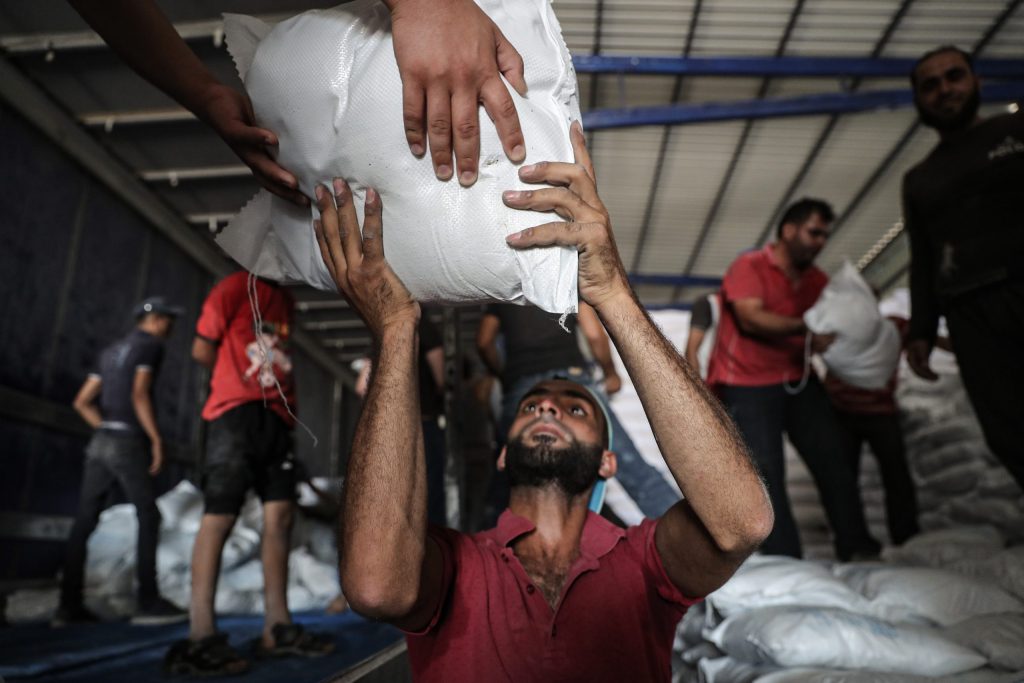
Freezing of International Aid
The Trump administration’s abrupt and massive cuts to foreign aid imperils millions of people by shuttering USAID. Across the African continent, where the United States had been a leading supporter of life-saving food, medicine, and other vital health services that curbed the spread of HIV as well as other infectious diseases, the sudden slashing of U.S. aid jeopardizes the health of populations already enduring conflict, displacement, and insecurity, including women and children.
Critically, the shuttering of USAID will dramatically increase the spread of new infections and lead to thousands of unnecessary deaths. According to the World Health Organization (WHO), health systems are already at heightened risk for supply chain collapse and problems with surveillance in at least 18 countries that depended on the United States for 89% of their funding for tuberculosis care. Health studies predict that the loss of USAID funding, without a replacement from other funding sources, could result in 15.2 million addition AIDs deaths, 2.2 million additional deaths from tuberculosis, and 7.9 million additional child deaths from other causes.
PHR shared evidence with the House Foreign Affairs Committee that showed that the DRC faced losses of up to 70% of its foreign aid, rendering hospitals unable to provide critical services and respond to disease outbreaks. Halts in care for survivors of sexual violence come at a particularly critical time. Humanitarian actors reported more than 895 cases of rape in February alone, averaging more than 60 cases a day. PHR also reported that aid cuts threaten to collapse the health system in Ethiopia. USAID funding was critical for supporting water, sanitation, food, and health care needs of internally displaced populations, operation costs for clinics that treat survivors of sexual violence, and programs for distributing HIV medication. 5,000 health care workers were furloughed by the Ethiopian Ministry of Health as of late March. PHR urges the administration to reinstate vital funding for health and human rights sectors, as well as other essential work by our partners and other beneficiaries of U.S. foreign aid.
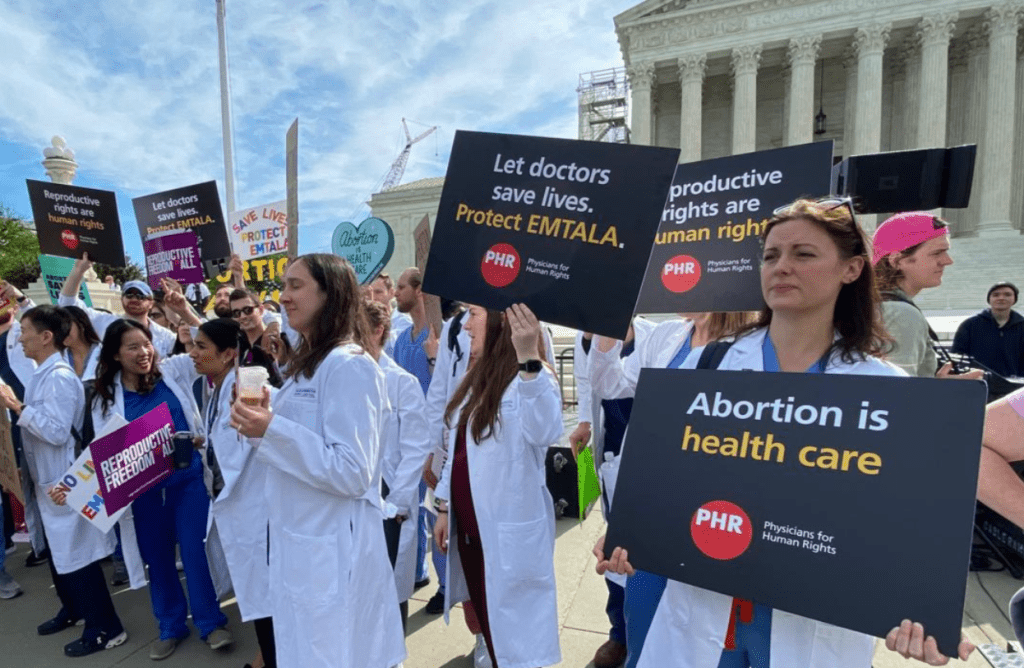
Attacks on Reproductive Rights
Among the first actions taken by President Trump in 2025 was the reinstatement and expansion of the so-called Global Gag Rule, a policy that prohibits organizations that receive U.S. global health assistance from providing legal abortion services or referrals, while also barring advocacy for abortion law reform – even if it is done with the NGO’s own, non-U.S. funds. By restricting U.S. funding for organizations that provide comprehensive reproductive health services, the Trump administration is threatening the health and rights of millions of individuals of reproductive age, particularly in low- and middle-income countries.
Meanwhile, here in the United States, President Trump pardoned 23 anti-abortion extremists who attacked abortion clinics and harassed clinicians. The pardons come as anti-abortion officials in states like Louisiana and Texas use the courts to target doctors who mail abortion medications across state lines. The Department of Justice also announced that it is dropping its case against the state of Idaho requiring that hospitals still provide emergency abortion care under the Emergency Medical Treatment & Labor Act (EMTALA). This decision represents a significant break in government policy, which previously ensured that doctors could help pregnant patients suffering from life-threatening conditions before patients were on the brink of death. Funding freezes on Title X by the Department of Health and Human Services (HHS) have targeted clinics that provide affordable birth control, STI testing, and other essential health services, on the grounds that these clinics promote diversity, equity and inclusion.
PHR recognizes that access to abortion care is part of reproductive rights and justice, whether abroad or here in the United States. PHR’s research with our partners have exposed the unworkability and harms of abortion bans in several U.S. states including Idaho, Oklahoma, Louisiana, and Florida, impacting clinicians and patients alike. We commend state governments like that of New York which are redoubling their commitment to shield health workers in their state from prosecution and other penalties under other state’s bans. We call for an end to the criminalization of abortion care, for both patients and clinicians alike.
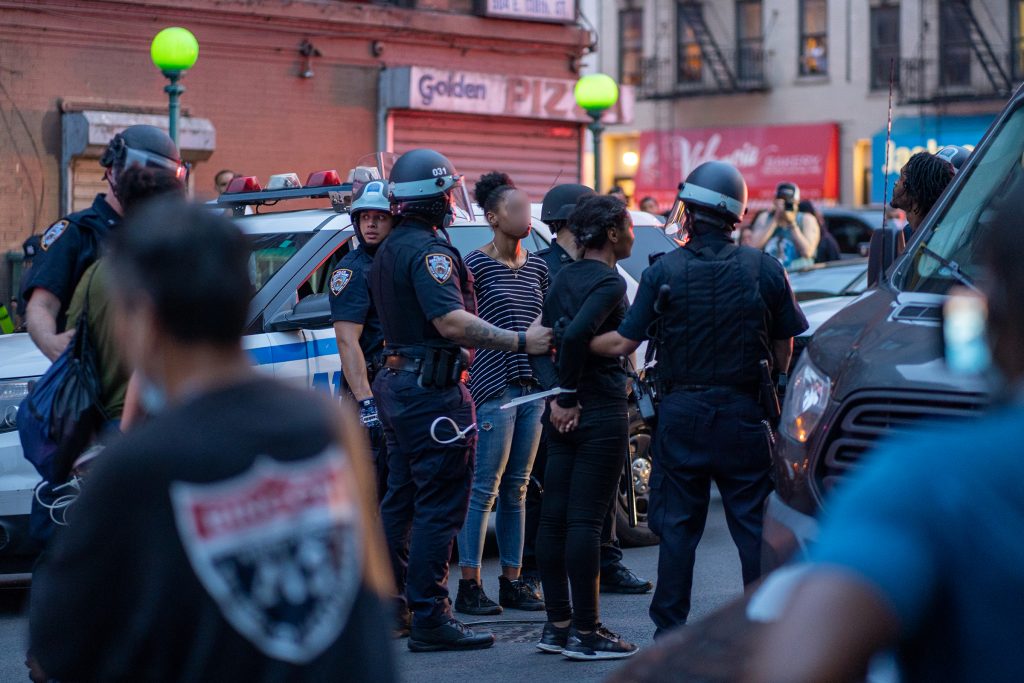
Ending Bans on “No-Knock” Warrants, Choke Holds, and Militarized Policing
Another troubling move by the Trump administration was the reintroduction of federal “no-knock” warrants, which allow law enforcement officers to enter private homes without prior notice or announcement, and an end to the federal ban on the use of choke holds. This move reverses important reforms that sought to end these dangerous practices and increases the risk of deadly confrontations between law enforcement and communities of color. Both the use of no-knock warrants and choke holds have already led to numerous high-profile cases of police violence, often with fatal consequences, and disproportionately impact Black, Latino, and Indigenous communities.
PHR has documented excessive force used by law enforcement against communities across the United States, including the dangerous and sometimes deadly use of crowd-control weapons. Our work has also helped debunk pseudo-scientific terms with racist origins like “excited delirium”, motivating leading medical associations and multiple U.S. states to ban the term.
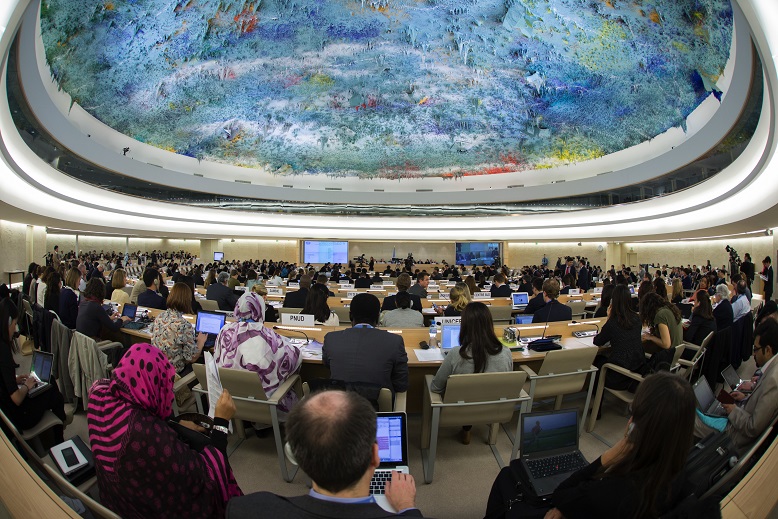
Withdrawal from the World Health Organization and other International Bodies
Another dangerous action taken by President Trump was to withdraw the United States from the World Health Organization (WHO). This decision directly undermines international health cooperation, weakening global efforts to combat infectious diseases, and limiting access to health care resources in countries that need it most. The United States’ exit from the WHO reduces the ability of health professionals around the world to coordinate responses to health emergencies and threatens the global health infrastructure that has been vital in preventing and managing public health crises. These actions limit the United States’ ability to confront the active outbreaks of avian flu, Ebola, and Marburg virus – threatening the health of people in the United States and abroad alike. PHR has long supported the work of the WHO in promoting universal access to health care and addressing health inequities. PHR has documented how the Trump administration’s previous efforts to distance the United States from international health organizations have had damaging effects on global health, including during emergencies such as the COVID-19 pandemic.
In February, President Trump signed another Executive Order ending U.S. participation in the United Nations Human Rights Council (UNHRC) and ordered a review of the U.S. relationship with all other international bodies. Unlike the U.S. withdrawal from the UNHRC during the first Trump administration, the U.S. is not currently a Member State of the UNHRC, so its withdrawal will be less immediately disruptive. However, by exiting these multilateral fora, the United States will be abandoning its leadership on the global stage in addressing, mitigating, or shaping human rights and other crises around the world.
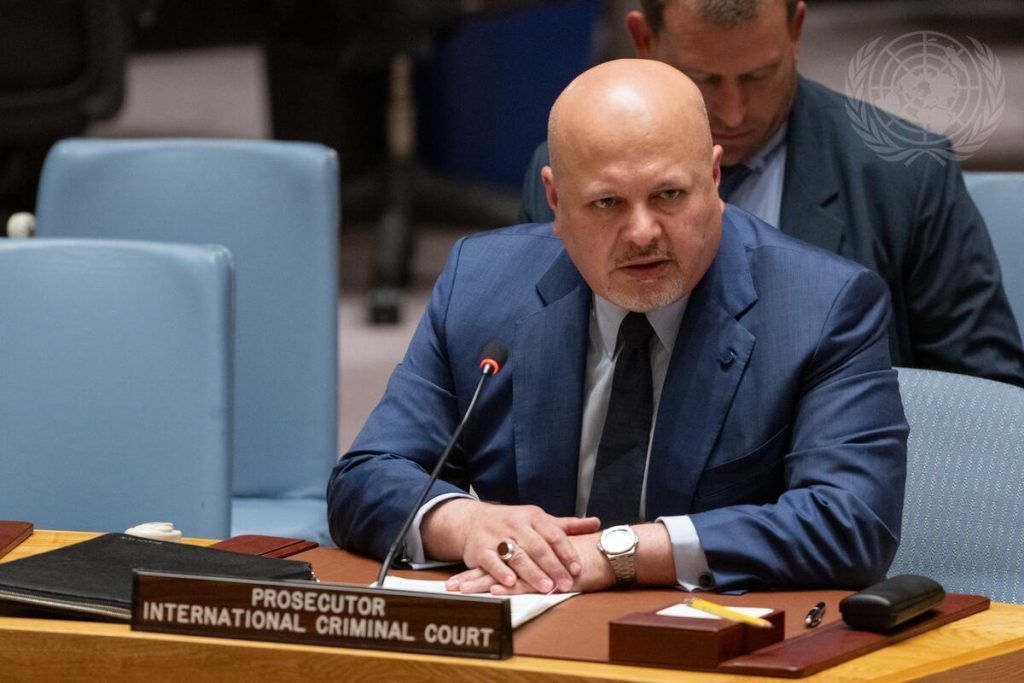
Sanctions Against the International Criminal Court
In January 2025, President Trump revoked the Biden Administration’s previous order that rescinded the first Trump administration’s sanctions against officials of the International Criminal Court (ICC) in The Hague. In February, the president issued sanctions against individuals and their families who assist the ICC in investigations of citizens of the United States or its allies who are not a state party to the Rome Statute. U.S. Congress is actively considering legislation that would enact new, far-reaching sanctions against the ICC, as well as individuals cooperating with the ICC.
PHR has long supported the work of the ICC in bringing justice to victims and survivors of atrocities, particularly in places where local justice systems are unable or unwilling to hold perpetrators accountable. PHR has supported case building and evidence sharing on war crimes and other atrocity crimes in countries like the Democratic Republic of Congo, Sudan, Ukraine, and others, The ICC remains a vital part of the global justice infrastructure that helps ensure reparations for victims and survivors of war crimes, crimes against humanity, and genocide. PHR renews its call for the United States to lift any sanctions or penalties against individuals for their work supporting justice and accountability in the international court system and continues its long-standing call on the United States to join the Rome Statute supporting this international court of last resort.
Looking Ahead
This year, the human rights record of the United States will be the subject of scrutiny before the United Nations Universal Periodic Review (UPR). To support the UPR process, PHR and our partners have submitted our evidence and recomendations on urgent health and human rights developments in the United States. Explore our submissions here. PHR will continue to monitor these developments and advocate for the rights of those most at risk. To stay informed on the ongoing impact of these policies, please subscribe for updates and explore our resources.

